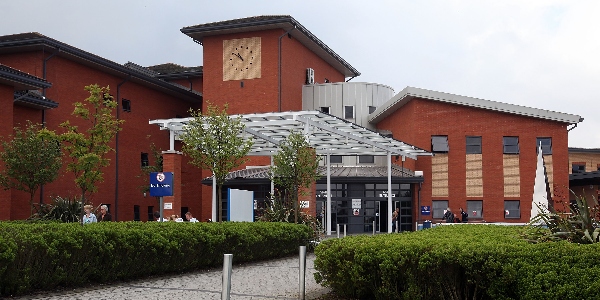
The Society of Radiographers has praised the use of a new diagnostic AI tool used in Wythenshawe Hospital, Manchester to optimise cancer care for patients.
Designed by medical technology company Annalise.Ai and supported by the government’s AI Diagnostic Fund, radiographers and radiologists are using the tool to analyse chest X-Rays and CT scans to speed up the detection of lung cancer. The AI tool flags potential high risk cases, and then sends necessary information back to the clinician in less than one minute.
Across Greater Manchester NHS trusts each month, the tool is estimated to be supporting the image analysis and clinical decision making for over 40,000 X-rays. And it is thought that up to 1,400 CT scans have been avoided thanks to the AI tool, ensuring patients receive the most appropriate treatment as quickly as possible, and cutting waiting lists.
Use of the tool forms part of the UK government’s 10 Year Health Plan, under which it pledged to shift healthcare from analogue to digital. It additionally supports the Plan for Change, which in part focuses on reducing waiting lists. The Plan for Change has cut waiting lists by over 260,000 since the current government came into office.
Ongoing AI implementation welcomed by the SoR
Tracy O’Regan, SoR professional officer for clinical imaging and research said the society supports the rollout of the AI tool across Manchester. “We agree with NICE guidance that AI-derived software should, for now, be used alongside clinicians within research governance, so that robust evidence can be gathered on its clinical and cost benefits.
“The Society of Radiographers welcomes the continued development of artificial intelligence (AI) for lung cancer diagnosis, particularly the innovative work underway in Manchester.”
“AI has great potential to support reporting radiographers and radiologists in detecting lung cancer earlier - helping them to address the NHS ambition to diagnose more cancers at stages 1 or 2 and ultimately improve experience and outcomes for patients and their families.”
Dr O’Regan added that although evidence does not yet support full clinical evaluations using AI, the SoR will back research efforts that aim to evaluate AI in clinical settings.
“Early studies indicate that AI could enhance the speed and accuracy of chest X-ray reporting, prioritise urgent cases, and help optimise referral pathways,” she continued. “These exciting advances bring hope for more efficient and effective diagnosis and treatment.”
“The Society of Radiographers encourages all centres using AI to collaborate with the companies providing the AI software in order to facilitate this important research and evidence generation. By working together, we can help ensure that innovation in AI ultimately benefits patients, professionals, and the NHS.”
Dame Laura Lee DBE, chief executive of cancer charity Maggie’s, said she welcomes the introduction of AI technology to assist in cancer diagnosis.
“With years of experience supporting thousands of people with cancer in Manchester, at Maggie’s we know how important diagnosing cancer early is,” she said. “We welcome the increased use of AI technology in the NHS to ensure more cases of lung cancer are detected early so people can begin treatment as quickly as possible.”
Further groundbreaking technology
On Friday (1 August) Health Minister Ashley Dalton was due to visit the Wythenshawe Hospital to see how staff are using AI to support cancer patients. Ms Dalton also planned to see a different piece of innovative technology - a state-of-the-art robotic probe that is quickening the diagnosis and treatment of lung cancer in Wythenshawe Hospital.
(Image: Photo by Christopher Furlong/Getty Images)
